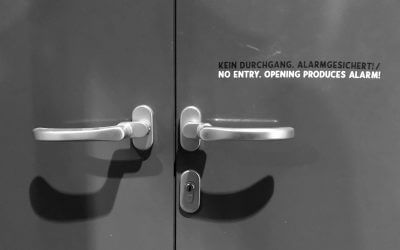Using values as the driving force for good decision-making. Do you know your values?
It’s easier to make good decisions when you know what your values are
Personal values and decisions
Personal values are very important. Values are fundamental beliefs and attitudes about life. They are the basis for many decisions and actions. By becoming more aware of your values, you can use them as a guide to making the best choice in any situation.
Overview
Know yourself! Because when your values are clear to you, making decisions becomes easier.
Karsten Noack
Values are important because life is full of decisions
Yes, life is full of possibilities. Where you go, what you do and who you become are the result of the daily decisions you make.
Values are what we are all about. Therefore, values should be the driving force for our decisions. They should be the basis for the time and effort we spend thinking about decisions. But this is usually not the case. It is not even close to what it is. Instead, decision-making usually focuses on the choice of alternatives.
It is a common experience to look at an upcoming decision the way most people see a problem, and are influenced by the available alternatives. The decision-making process, therefore, begins when at least two alternatives are available. I guess that happens in almost all decision-making situations, but it shouldn’t be like that. It should be possible to decide on a better base.
Personal values
Personal values, in the sense of these pages, are the basic beliefs and attitudes about life. They are the motivation for decisions and actions. The values are a level in the pyramid of neurological levels according to Robert Dilts (external link).
There are personal values (kindness, trust, etc.), spiritual values (intelligence), religious values (beliefs), moral values (behavior), and material values (money, power, possessions, etc.). Some values, such as the value of respect for property, can be used to derive social norms as concrete rules for social action, such as laws prohibiting theft. Values are a central component of many behavioral codes.
Know your values
In my work, I underline the role that your values have in decision-making. Your values are fundamental to making decisions, instead of only looking at the alternatives to decide the best outcome. Ask yourself why do you feel you need to choose an alternative option instead of letting things play out and see what happens?
The consequences of choosing alternative options may contradict the true values that are important to you and therefore this requires attention. The reason you are interested in deciding on any situation is the desire to avoid undesirable situations and achieve good opportunities. In any decision process, the alternatives are the means to achieving the more fundamental values you want.
When you define your values, you discover what’s truly important to you. A good way of starting to do this is to look back at your life − to identify when you felt wonderful and confident that you were making good choices.
Identifying and understanding your values is a challenging and important task. Your values are a central element of who you are and who you want to be. By becoming more aware of these important factors in your life, you can use them as a guide to making the best choice in any situation.
Some of life’s decisions are really about determining what you value most. When many options seem reasonable, it’s helpful and comforting to rely on your values and use them as a strong guiding force to point you in the right direction.
- Accountability
- Accuracy
- Achievement
- Adventurousness
- Altruism
- Ambition
- Assertiveness
- Balance
- Being the best
- Belonging
- Boldness
- Calmness
- Carefulness
- Challenge
- Cheerfulness
- Clear-mindedness
- Commitment
- Community
- Compassion
- Competitiveness
- Consistency
- Contentment
- Continuous Improvement
- Contribution
- Control
- Cooperation
- Correctness
- Courtesy
- Creativity
- Curiosity
- Decisiveness
- Democraticness
- Dependability
- Determination
- Devoutness
- Diligence
- Discipline
- Discretion
- Diversity
- Dynamism
- Economy
- Effectiveness
- Efficiency
- Elegance
- Empathy
- Enjoyment
- Enthusiasm
- Equality
- Excellence
- Excitement
- Expertise
- Exploration
- Expressiveness
- Fairness
- Faith
- Family-orientedness
- Fidelity
- Fitness
- Fluency
- Focus
- Freedom
- Fun
- Generosity
- Goodness
- Grace
- Growth
- Happiness
- Hard Work
- Health
- Helping Society
- Holiness
- Honesty
- Honor
- Humility
- Independence
- Ingenuity
- Inner Harmony
- Inquisitiveness
- Insightfulness
- Intelligence
- Intellectual Status
- Intuition
- Joy
- Justice
- Leadership
- Legacy
- Love
- Loyalty
- Making a difference
- Mastery
- Merit
- Obedience
- Openness
- Order
- Originality
- Patriotism
- Perfection
- Piety
- Positivity
- Practicality
- Preparedness
- Professionalism
- Prudence
- Quality-orientation
- Reliability
- Resourcefulness
- Restraint
- Results-oriented
- Rigor
- Security
- Self-actualization
- Self-control
- Selflessness
- Self-reliance
- Sensitivity
- Serenity
- Service
- Shrewdness
- Simplicity
- Soundness
- Speed
- Spontaneity
- Stability
- Strategic
- Strength
- Structure
- Success
- Support
- Teamwork
- Temperance
- Thankfulness
- Thoroughness
- Thoughtfulness
- Timeliness
- Tolerance
- Traditionalism
- Trustworthiness
- Truth-seeking
- Understanding
- Uniqueness
- Unity
- Usefulness
- Vision
- Vitality
What’s that good for?
This list of values serves as a guide. The list contains some synonyms and is not complete. Do you know more values? Then you can use the comment field and I will complete the list.
For example, this list of values helps you to get a clearer view of what’s important to you personally. You could print out this page, highlight the values that feel best for you, and sort them by importance. As you go through the list, it may be that some values are of little or no importance to you, and some may even be considered negative. Take a closer look and dedicate the values that magically attract you. Then you know your priorities.
Focus on what is important for yourself
In short, we should spend more of our decision-making time concentrating on what is important: articulating and understanding our values and using these values to select meaningful decisions to ponder, to create better alternatives than those already identified, and to evaluate more carefully the desirability of the alternatives.
Using values as the driving force for your decision-making.
Coaching for decisions
Decisions have to be made over and over again - small and large. Some are easy, some are difficult. We make many of these decisions without having to think much about them or even completely unconsciously, automatically. But now and then we come to the point where we encounter a decision where we pause, don't know what to do, don't see clearly. Often these are decisions of great importance that also have the ability to question important aspects of life that were previously considered given or untouchable. Such a situation can create pressure and even lead to paralysis, so that creative and constructive ways remain unconsidered.
Who sees clearly, can decide better and act purposefully. In order for this to succeed, it is necessary to ensure that the options are identified and, if necessary, increased and priorities clarified. Decision coaching helps to oversee the forest for the trees and to find the right focus. The best decision and creativity techniques can be used most effectively in a good mental state.
In order to make your decision easier, to be supported by me, I focus on transparency. On these pages you will find information about me (Karsten Noack) and the fees.
Just ask me personally
Please post any questions that may be of interest to other readers in the comments. Looking for professional help?
If you are interested in coaching, training or consulting, if you have organizational questions, or if you want to make an appointment, you can reach me best via this contact form (you can choose if you want to enter your personal data) or via e-mail (mail@karstennoack.com). You can also reach me by phone at +49(0)30 864 213 68 or by cell phone at +49(0)1577 704 53 56 from Monday to Thursday from 9:00 to 18:00. Most of the time I am in sessions, so please leave a message with your phone number in Germany. Please remember to be very specific about the reason for your call. I will get back to you as soon as possible. The privacy policy can be found here.
Transparency is important. That is why you will find answers to frequently asked questions already here, for example about me (profile), the services, the fees and getting to know me. If you like what you see, I look forward to working with you.
Message
Remarks:
In the address bar of your browser, the URL should begin with "https://www.karstennoack.com/...". This indicates a secure connection (SSL). Whether you enter your real name is up to you.
1 Comment
Submit a Comment
Don’t ignore conflicts!
When problem-solving everyday issues become a tug-of-war over who’s right and who’s wrong, then settling even the smallest of discussions becomes a battle. Don’t ignore conflicts. Deal with them!
Beware of manipulation: Intentional mirroring in conversations
Intentional mirroring is the deliberate imitation of other people to make them feel good. It serves to promote rapport and can also be used against the interests of the mirrored.
15 tips on how to stand up for your conviction: Be brave, speak up!
Some people have an opinion that deserves attention. Often, however, this opinion is not heard. Then it is time to decide whether to keep it that way or to share the point of view more clearly with others. Not everyone dares this step. What about you?
Recognize the 11 most common manipulation techniques
Learn how to recognize manipulation and choose counter-strategies. Here are descriptions of eleven types of manipulation techniques including body language.
Here and now
Be aware of the side effects of planning. We could miss being in the moment right now.
One side of character is integrity
Integrity is an important part of a character. Integrity is a choice we make, and it’s a choice we must keep making, every moment of our lives. Develop and protect your integrity.
Are impatience and laziness cardinal sins?
Do you think that impatience and laziness are sins? Or do you see the good intent?
Promises and integrity: Who cares about the promises of yesterday?
Actions that follow words? Authenticity? Walk your talk? In a world in which we are not accustomed to doing that, this is quite remarkable.
More contentment through self-acceptance or does that reduce the motivation?
Many people consider discontentment to be the most important motivator. My observation: We are happier when we learn to accept ourselves as we truly are. And we stimulate personal development this way.
Good fear, bad fear
What are fears and anxiety good for and how to let go of limiting fears?
The strength of character and how to cultivate it. 20 factors
Do you stand up for yourself and your concerns, are you true to your values even when there is a headwind? This article is about 20 elements of character strength and how to cultivate them.
Opinion making needs reliable information
Instead of blindly adopting opinions, it is worth investing in your own opinions. But where does the information come from?
This article is a short excerpt from the more comprehensive course materials my clients receive in a group or individual training or coaching.
Published: March 1, 2008
Author: Karsten Noack
Revision: May 15, 2020
Translation: ./.
German version: https://www.karstennoack.de/werte/
K:
H:
T: RR
AN: #1899












And how many values should someone focus? And how can I find out about the priorities?